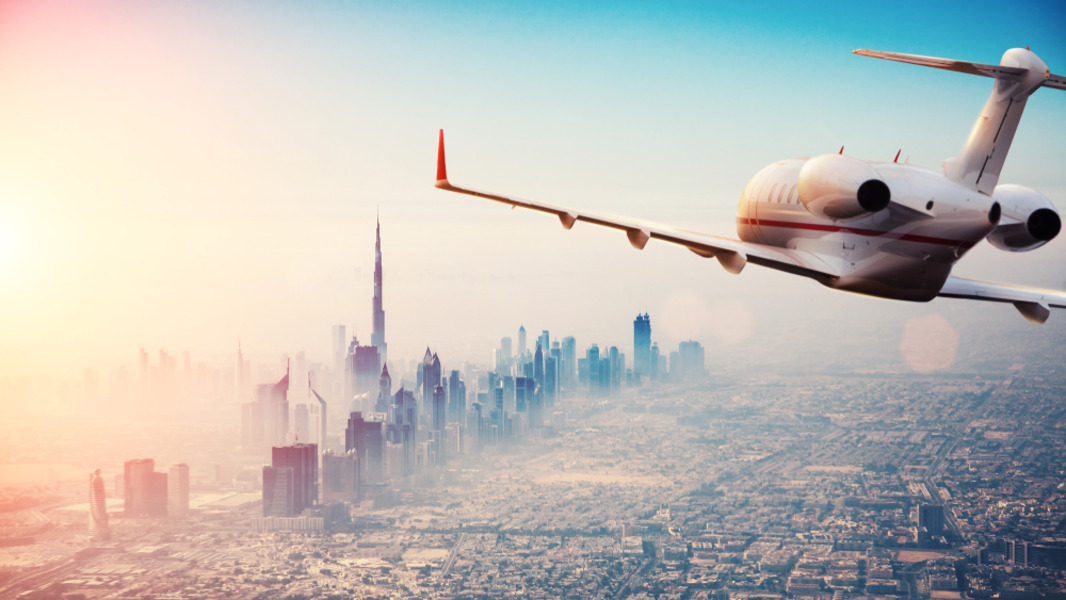In the ‘Mobilizing New Economies’ session at the Investopia 2023 conference, industry experts discussed the future of mobility and its vital role in building a sustainable future.
One of the key themes that emerged from the session was the role of AI and technology in logistics. H.E. Omar Al Olama spoke about the need to regulate the negative aspects of technology while also creating opportunities for innovation. The UAE’s approach is to provide a sandbox model for testing new technologies while developing homegrown solutions. For example, DP World is working on automating port operations, while Dnata is automating airport logistics.
Kyle Clark, CEO of BETA Technologies, discussed the potential for electric cargo and logistics. His company makes electric aircraft for cargo that produce zero operational emissions, which is attractive to the cargo and logistics industry. Kyle Clark argued that the data shows that electric battery aircraft are much safer than traditional fuel-based aircraft.
Read more: Investopia kicks off by setting the tone for the entire event
Val Miftakhov, founder and CEO of ZeroAvia, said his company is producing large-scale hydrogen plants for commercial aviation, starting with 10-20 seat aircraft. Miftakhov argued that hydrogen is the most accessible fuel to build infrastructure, and once the technology is available, the transition to hydrogen-based aviation could be rapid.
Jane Poynter, founder and co-CEO of Space Perspectives, said her company uses space balloons to expand the capacity of people being carried into space. Poynter argued that space travel is here and will soon take on unprecedented numbers of people into space. She also discussed the potential for human activity in space, such as a film studio where conversations could occur and be sent worldwide.
Reports on the Middle East aviation market
Findings of the Global Fleet and MRO Market Forecast 2023-2033, recently released by Oliver Wyman, a global management consulting firm showed that despite a sluggish international travel market, the pace of recovery in the Middle East aviation market accelerated throughout 2022 and is expected to take off over the next 10 years with the region’s share of the global fleet set to expand.
The forecast found the global commercial fleet at 98% of where it was in January 2020 (27,400 aircraft at the last count), while global passenger traffic, both domestic and international, is at 82% of its 2019 level.
Meanwhile, the global aviation aftermarket, which provides the maintenance, repair, and overhaul (MRO) required to keep the fleet flying, is expected to be back at 98% of its 2019 peak by the end of this year.
The Middle East remains among the fastest-growing aviation markets in the world, with the regional fleet set to expand by 5.1% annually over the next decade.
Long term, aviation faces a new challenge in the quest for net zero. Emissions from aviation are likely to rise over the next decade, given the strong demand for air travel and the lack of alternatives to current jet propulsion.
Also, according to Airbus’ latest Global Market Forecast, regional airlines are expected to require 3,020 new passenger and freight aircraft deliveries by 2040, bringing the total fleet to 3,210 from a 2019 fleet baseline of 1,300 aircraft.
Consequently, airline fleet growth will trigger the Middle East aviation services sector to also ramp up significantly over the coming decade. Airbus expects the Middle East aviation services business to witness a 4.7% average annual growth until 2041, surpassing the global average (3.7%).
For more on Investopia, click here.








